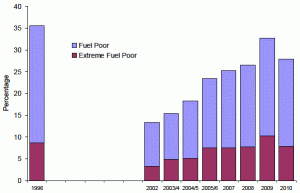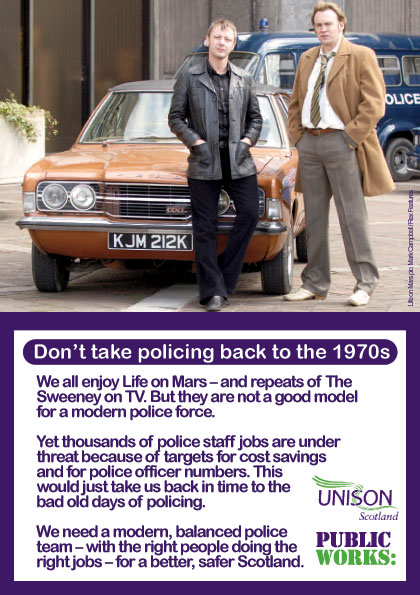The Chancellor’s UK Spending Review is predictably more of the same failed austerity economics. George Osborne should remember the saying, “When you’re in a hole stop digging”.
Despite previous cuts, his ‘hole’ remains a pretty big £118.5 billion deficit. A further £11.5bn of cuts will reduce demand in the economy, driving up welfare and other costs that simply add to the deficit. Only creating employment, enabling workers to pay tax and claim fewer benefits will take us forward. That requires borrowing, but as the IMF has shown, such borrowing can pay for itself.
For Scotland, the Spending Review confirms a real terms cut in the Scottish Government’s budget of £333m between 2014/15 and 2015/16. The capital budget will have been cut by 26% in real terms since 2010. The ‘new’ money claim by the Secretary of State, is actually largely borrowing powers that have to be repaid from a reducing revenue budget. Robbing Peter to pay Paul doesn’t even begin to describe this nonsense. Instead of the promised growth, £3.2bn is being taken from the Scottish economy.
There was also more public service worker bashing in the Chancellor’s statement:
- A cut of 144,000 jobs, on track with the OBR estimate of 1 million job cuts from 2011 to 2018. It is always difficult to translate this into Scottish jobs, but I would estimate around another 40,000 jobs on top of the 51,000 that have been lost since the crash.
- A further year’s 1% cap on pay increases in the public sector, on top of the current cap and previous pay freeze. While this doesn’t automatically apply to Scotland, the Scottish Government usually follows the Treasury’s lead on pay. TUC research published earlier this week showed the impact this had had on households, pushing 180,000 children with a parent in the public sector into poverty. Real pay of Scottish public sector workers has fallen by 13% in past three years
- The abolition of automatic pay progression. This doesn’t automatically apply to Scotland and we will have to wait until the autumn to see if the Scottish Government slavishly follows Osborne on this issue. We will be pointing out that the rate for the job is the top of the scale, so if you abolish the learning increments that will be a welcome, if unexpected, pay rise for many!
As I set out at the start of this blog, workers in jobs pay taxes as well as spend in the high street, stimulating demand. I recently came across this interesting assumption in the Office of Budgetary Responsibility’s budget forecast: “Whole economy wages are expected to grow by 1.4 per cent this year and around 2.7 per cent in 2014, rising gradually to 4.0 per cent in 2016”. This means the Chancellor’s revenues are dependent on a pretty dramatic increase in real wages as the table below shows. Hard to see where that revenue is coming from given continued pay cuts in the public sector.
This is not the only statistical slight of hand in today’s statement. Faisal Islam at Channel 4 claims to have witnessed “the most egregious statistical chicanery…in a Treasury fiscal event in 13 years of covering economics for newspapers and TV”. He is referring to the use of gross investment rather than net investment figures, in a blatant attempt to talk up capital spending plans.
The reality is somewhat different because this government’s capital plans have a habit of not being delivered. Data from the Office of National Statistics shows that infrastructure spending in the first quarter this year plunged by 50% on the previous quarter and nearly 40% on the same period last year. This follows a 12% slump in 2012. Paul Johnson from the IFS said that, “the cuts in capital spending have been really dramatic, more so than the cuts in current spending…. there has been a bit of rebalancing, but capital spending has gone down a lot faster than other spending”.
Then we have the awful Osborne cliché, ‘we are all in this together’. Of course we are not. Far from being fair, from quintile four downwards households are hit progressively more severely as they get poorer. So rather than the impact of the Spending Revue being felt evenly, apart from at the very top, low earners and the poor are going to take the hit to a far greater extent than middle to higher earners. More work for the biggest growth industry in Britain, food banks. Particularly when his vicious first week benefit cut for those his policies have driven out of work, kicks in.
As this is Scotland, no announcement can be exempted from the independence debate and the Scottish Government’s response emphasises the choices we have to make. John Swinney is absolutely correct to say, “The Chancellor has chosen austerity over investment in growth and jobs and the cost has been the continuing deterioration in the public finances, prolonged recession and the downgrade of the UK’s credit rating”. However, he has someway to go convincing independence sceptics that his economic strategy would be that much different.
The two Ed’s have a similar problem. While promising not to reverse Tory spending cuts is a well worn Labour election strategy, the economic circumstances today are very different. Six years of austerity economics will leave a deeply scarred nation with falling living standards, reduced services and even greater inequality. The real risk for Labour is that the voters will decide that if continuing austerity is all that is on offer, what will be the point in voting at all?










